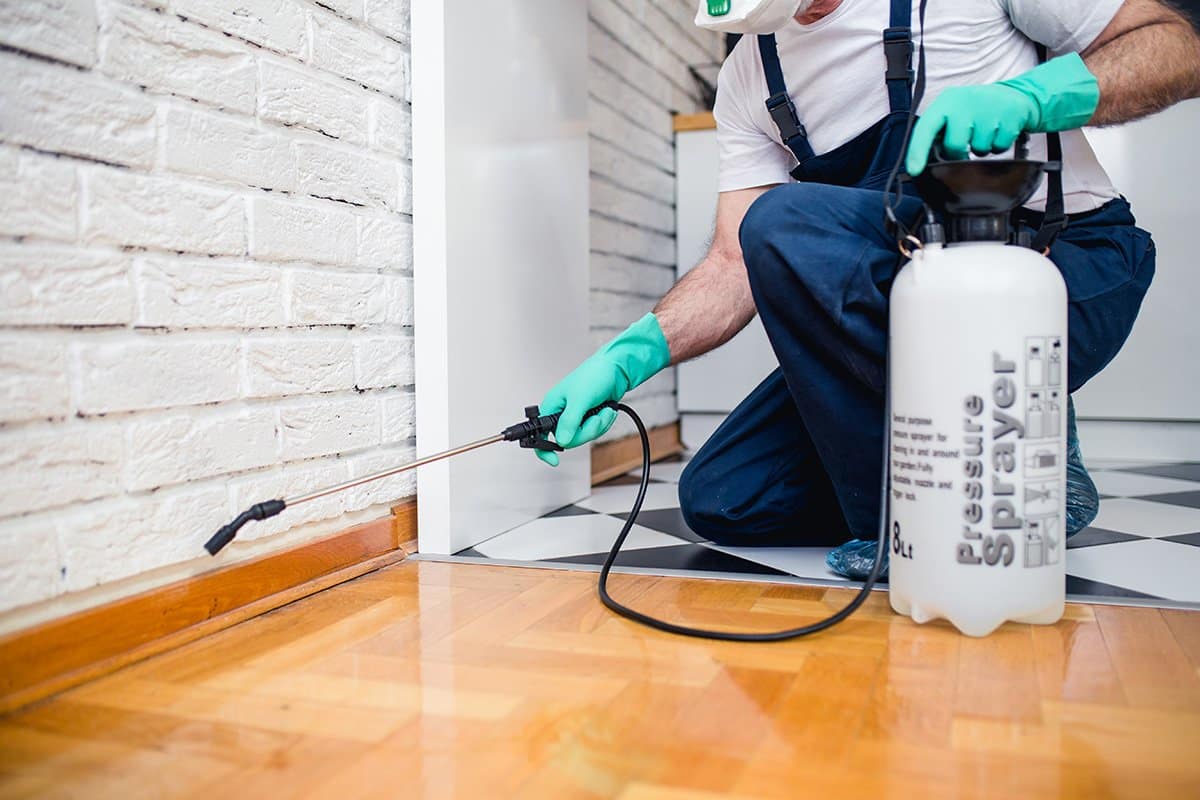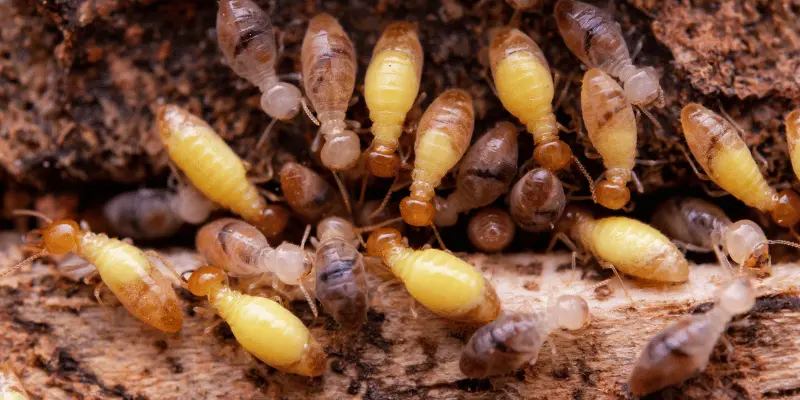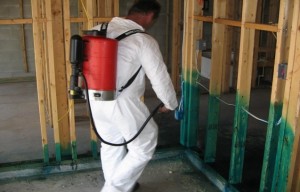Top-Rated Termite Control Services: Make Certain Long-Term Protection for Your Building
Top-Rated Termite Control Services: Make Certain Long-Term Protection for Your Building
Blog Article
Environmental Influence of Pest Control: Harmonizing Efficiency With Sustainability
The ecological influence of pest control is a vital issue that needs a fragile balance in between achieving performance in managing bugs and making sure sustainability of our communities. As we make every effort to safeguard our crops, homes, and health and wellness from the threats postured by insects, the approaches we utilize can accidentally hurt the setting. From making use of unsafe chemicals that seep right into our soil and water to the unexpected repercussions on non-target types, the consequences of standard pest control practices are far-ranging. Nonetheless, there are emerging techniques that offer wish for a more lasting approach to pest monitoring. These services not just goal to deal with the immediate bug troubles but additionally consider the long-term wellness of our planet.
Dangerous Chemicals in Pest Control
The usage of damaging chemicals in bug control positions considerable environmental and health dangers that call for mindful factor to consider and reduction strategies. Herbicides, chemicals, and insecticides are frequently used to eradicate parasites, but their extensive application can result in unintentional effects. These chemicals can infect soil, water sources, and the air, affecting not just the targeted bugs however additionally advantageous bugs, wildlife, and humans.

To deal with these threats, incorporated bug administration (IPM) techniques are being advertised as a more lasting alternative. IPM involves a combination of techniques such as biological control, habitat manipulation, and the targeted use chemicals as a last hotel (ant control newtonnc). By embracing an all natural approach to pest control, we can reduce the environmental and wellness influences connected with hazardous chemicals while efficiently handling pest populations
Impact on Non-Target Species
Taking into consideration the unexpected effects of pest control methods, the effect on non-target varieties is a vital element that requires extensive analysis. While pest control measures aim to target details bugs, other organisms in the environment might be inadvertently impacted. Non-target species, including beneficial bugs, birds, creatures, and also plants, can suffer direct or indirect damage from chemical applications or organic control methods.
Pesticides created to fight a specific insect bug may damage pollinators like or all-natural killers such as ladybugs. Biological control agents, if not species-specific, can present threats to unexpected targets, interfering with the ecological balance.
To minimize the influence on non-target varieties, incorporated parasite administration (IPM) approaches that stress a holistic method to pest control are suggested. These approaches focus on the use of eco-friendly practices, lessening damage to helpful organisms while efficiently taking care of pest populaces. Performing thorough threat evaluations and keeping an eye on the end results of bug control initiatives are vital steps in safeguarding non-target varieties and advertising overall community health and wellness.
Soil and Water Contamination
Unintended environmental effects of bug control methods extend beyond affecting non-target species, with significant effects for soil and water contamination. Pesticides, herbicides, and chemical fertilizers made use of in parasite control can leach right into the dirt and infect groundwater, presenting a risk to both earthbound and aquatic environments. Dirt contamination can interfere with the balance of microorganisms crucial for nutrition cycling and plant development, leading to lowered soil fertility and efficiency. These chemicals can continue in the setting for extensive periods, building up in the soil and possibly going into the food chain.
Water contamination is one more critical concern connected with insect control practices. To minimize soil and water contamination from insect control tasks, integrated bug administration strategies that focus on sustainability and reduce chemical inputs are critical.
Air Pollution From Chemical Use
Direct exposure to air-borne pesticides throughout agricultural applications presents a significant concern for air pollution control procedures. Additionally, chemical drift, where pesticides are carried by the wind to unexpected locations, can lead to the contamination of nearby communities and water bodies.

Techniques for Lasting Insect Control
In the realm of agricultural methods, implementing sustainable insect control methods is vital for maintaining ecological balance and safeguarding crop returns. Lasting insect control stresses making use of eco friendly techniques to handle bug populaces efficiently while decreasing injury to non-target microorganisms and communities. Integrated Bug Management (IPM) is an extensively adopted technique that incorporates organic, social, physical, and chemical control approaches to attain long-term bug monitoring solutions.
Plant turning and diversification are likewise efficient strategies to interrupt pest life cycles and produce less favorable problems for insects to grow. Ultimately, by incorporating these lasting insect control strategies, farmers can achieve a balance in between pest administration efficiency and environmental stewardship.
Conclusion
Finally, the ecological impact of parasite control techniques have to be thoroughly taken into consideration to balance efficiency with sustainability. Hazardous chemicals utilized in bug control can cause soil and water contamination, air contamination, and injury non-target types - ant control. It is crucial to carry out lasting bug control approaches to decrease these adverse results on the setting and promote a much healthier ecological community for future generations
By adopting an alternative strategy to pest control, we can minimize the environmental and wellness influences linked with damaging chemicals while successfully taking care of pest populaces.

To minimize the air contamination triggered by chemical use, it is important to embrace incorporated pest management techniques that focus on the use of non-chemical insect control techniques, such as crop turning, natural killers, and immune crop varieties. Lasting pest control stresses the usage of eco friendly methods to manage bug populations successfully while reducing harm to non-target microorganisms and ecological communities. Integrated Parasite Administration (IPM) is a commonly taken on strategy that incorporates biological, cultural, physical, and chemical control approaches to attain long-lasting insect monitoring services.
Report this page